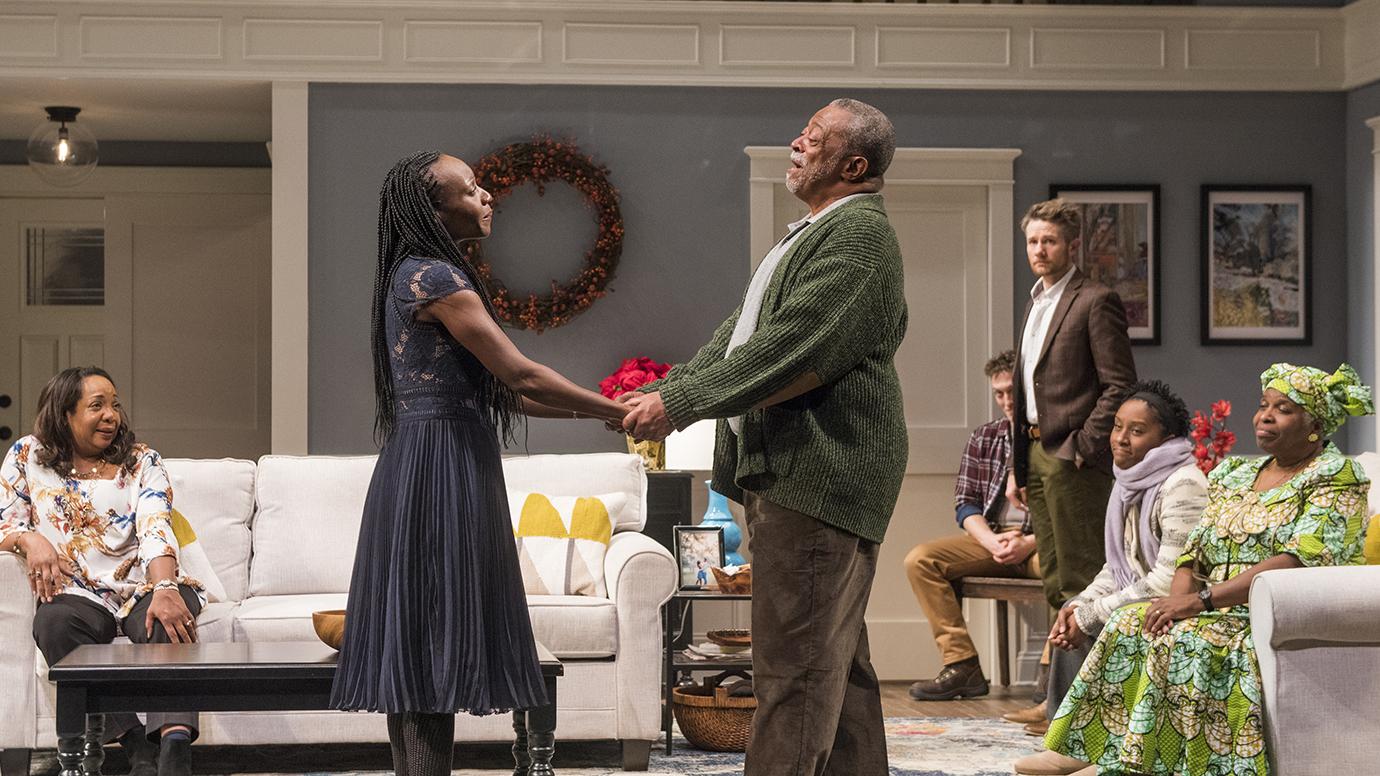When Danya Taymor was hired by the Steppenwolf Theatre Company to direct the new comedy, Familiar, she knew that she had to get the cultural elements exactly right. The play, which focuses on a Zimbabwean-American family preparing for the wedding of their eldest daughter, hinges on the conflict between Shona culture of Zimbabwe and American society.

In need of expert help, Taymor sought out Kathryn Takabvirwa, a member of the anthropology faculty at the University of Chicago. Takabvirwa grew up in Zimbabwe, and her research focuses on citizenship, culture and society in Southern Africa. Her background and work made her the ideal consultant for the production.
But Takabvirwa wasn’t so sure. “I didn’t know anything about the theater,” she said.
Taymor assured Takabvirwa experience in the preforming arts wasn’t required. What the production needed was a scholar who understood the complexities of the Shona culture.
“Kathryn was amazing,” Taymor said. “She brought so much authenticity to this play.”
A social and cultural anthropologist, Takabvirwa is teaching this winter in the African Civilizations sequence of UChicago’s distinctive Core Curriculum. In Takabvirwa’s class, students will discuss Zimbabwean culture, marriage and migrant diasporic life. She sees a strong connection between the play and anthropologic studies, planning to bring her work on Familiar into the classroom.
“It’s about communicating cultural norms and rituals of a Zim family to other people,” said Takabvirwa, who has been a Provost’s Postdoctoral Fellow at UChicago since 2018 and will become an assistant professor starting in 2020. “It was wonderful to be a part of that process.”
At Steppenwolf, Takabvirwa spent her first week on the project listening to the actors read through the play written by Danai Gurira, a Zimbabwean-American actress and playwright known for her roles in the film Black Panther and TV show The Walking Dead.

Takabvirwa talked with the actors about the context of the story, and why seemingly modest elements of the dialogue and direction were so important. From acknowledging the relevance of ancestral connections that extend relations beyond that of parents and their children, to understanding the appropriate ways of sitting, clapping and greeting an elder, Takabvirwa brought vital insights to the story, and in some cases, helped Taymor avoid making unintentional missteps.
Taymor recalls one scene in which the father and daughter are watching football together, and when the team scored a touchdown, she had them celebrate with a chest bump. “I didn’t think twice about the interaction, it was just a moment of celebration,” Taymor said.
But Takabvirwa demurred. She explained that a man in Zimbabwe would never thump chests with his daughter, and that the scene had to be altered or would interrupt the realism of the interaction. “It was a small moment but it had so much impact,” Taymor said, noting that she changed the direction to a fist bump. “I didn’t have the knowledge to pick up on that, but she did.”
Takabvirwa also helped Taymor rework positioning to ensure younger characters always showed respect to their elders. In Shona culture, a younger person would never stand and talk to an older person who was sitting down or choose a position higher up.
“It seems like a small thing, but the way you sit matters,” Takabvirwa said.
Taymor used that knowledge in one scene where Maggie, one of the aunts, remains standing while her two elder sisters are seated. “It is a deliberate way of reminding the audience that she has been out of Zimbabwe for a long time,” Takabvirwa said.
Familiar, which has been called an “exceptionally insightful…layered, compelling depiction of the unescapable pull of family and history,” is playing at Steppenwolf’s Downstairs Theater through January 13.







